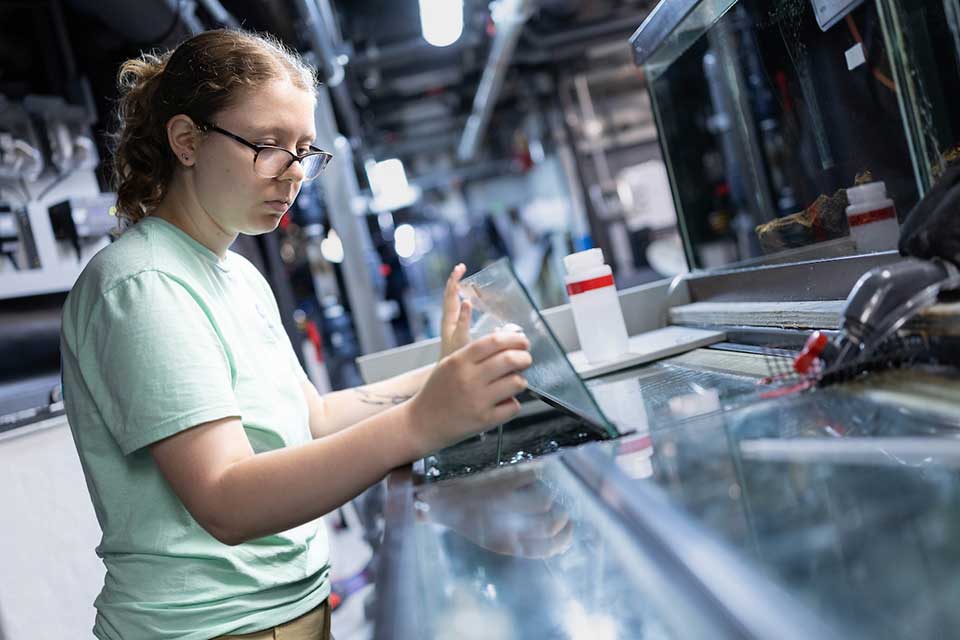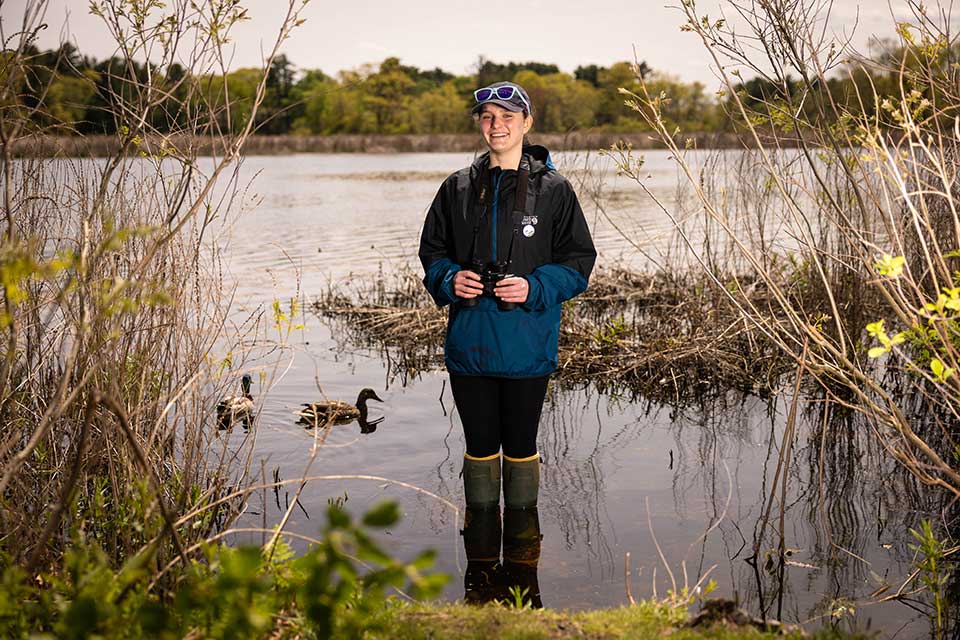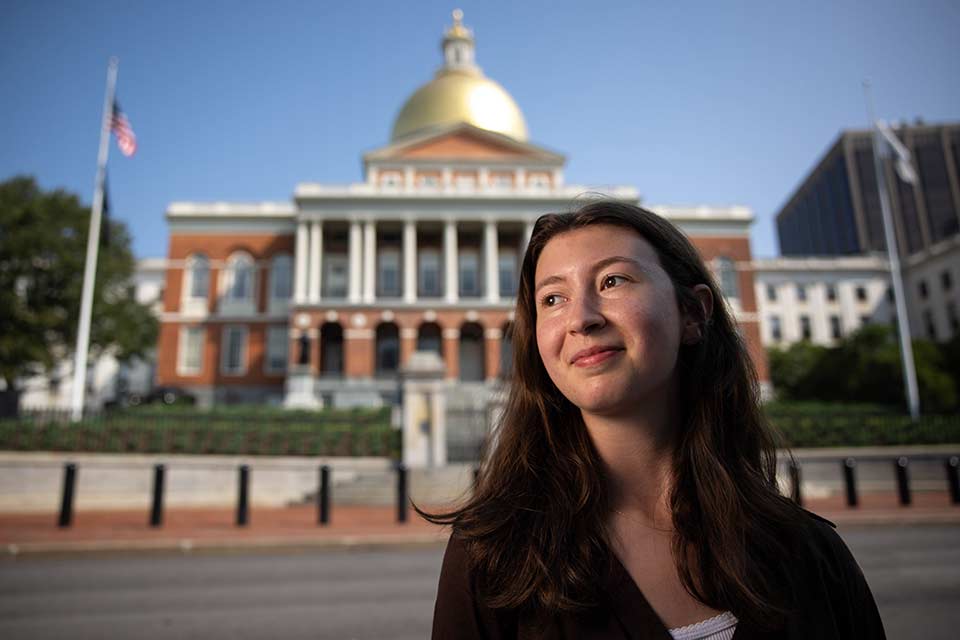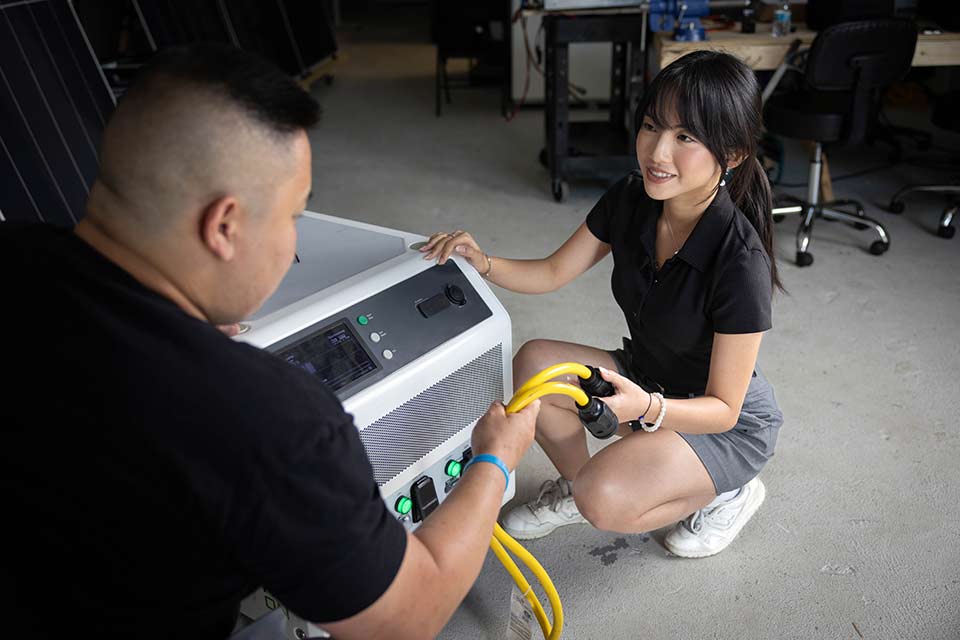Schooled on fish at the New England Aquarium
By David Levin
July 31, 2025
Behind the scenes at this storied Boston institution, Lyra Gold ’27 is discovering what it takes to become a marine scientist.
For Gold, the New England Aquarium has been a constant presence. Growing up in the Boston area, she and her family often visited for special occasions, sparking a lifelong fascination with marine science.
This summer, Gold is returning to the aquarium as an intern, giving her an experience at the iconic harborside institution from an entirely different perspective. For the past three months, she’s been part of the team responsible for the care and feeding of some of the building’s most fascinating residents. Mormyrids, or elephantfish — a freshwater African species with a distinct nose-like appendage — have particularly captured her attention.
“They have the largest brain-to-body ratio of any animal,” Gold explains. “They communicate using electrical signals with each other, which is super cool, but they also require a lot of mental stimulation.” To keep these remarkably intelligent fish engaged, Gold prepares enrichment activities using dog toys filled with food, encouraging the animals to problem-solve and stay active.
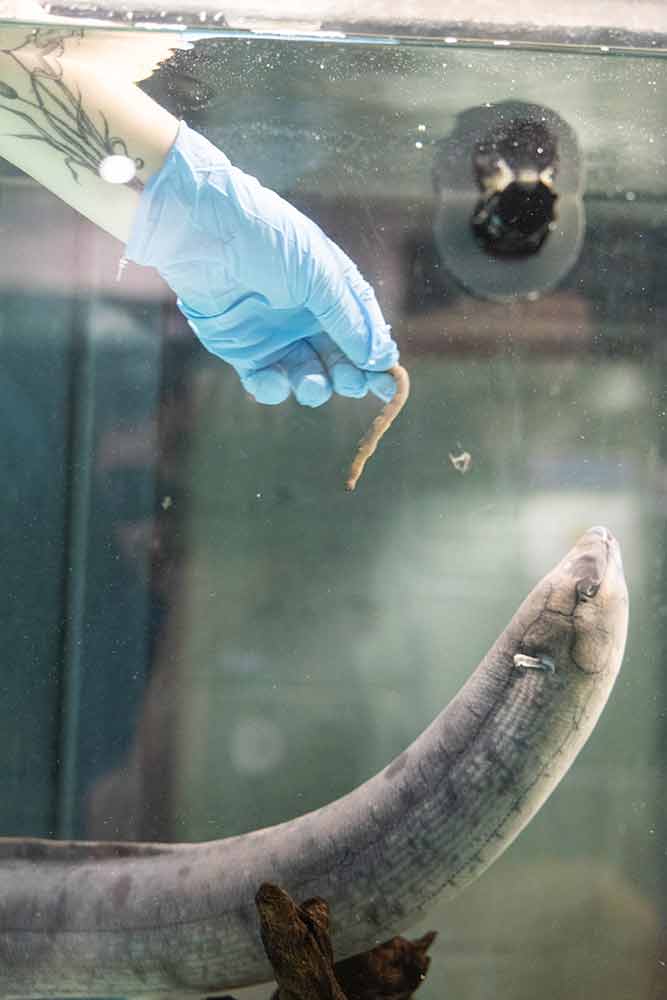
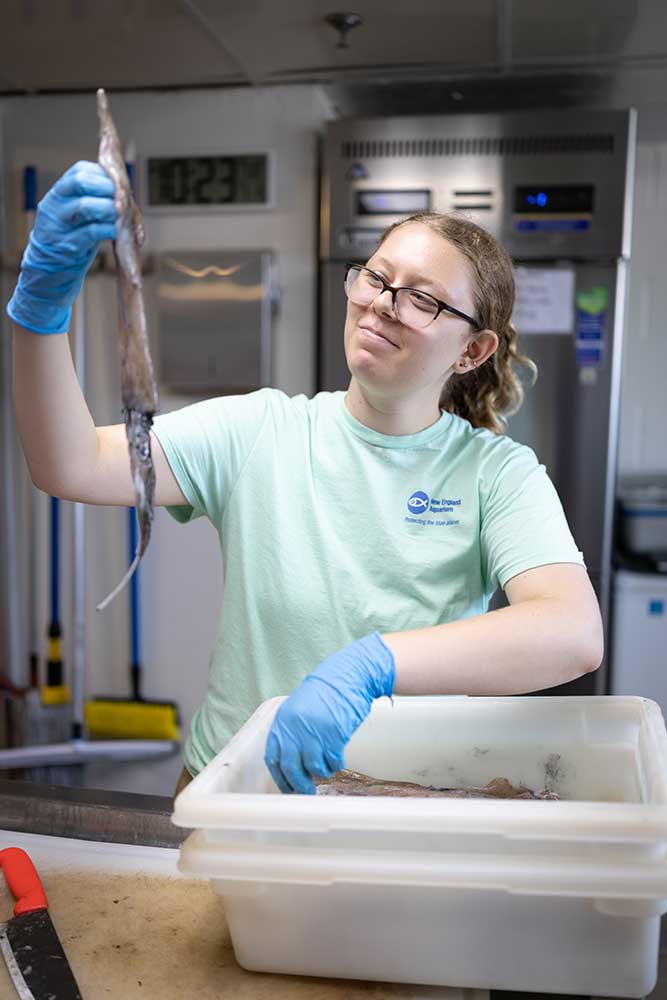
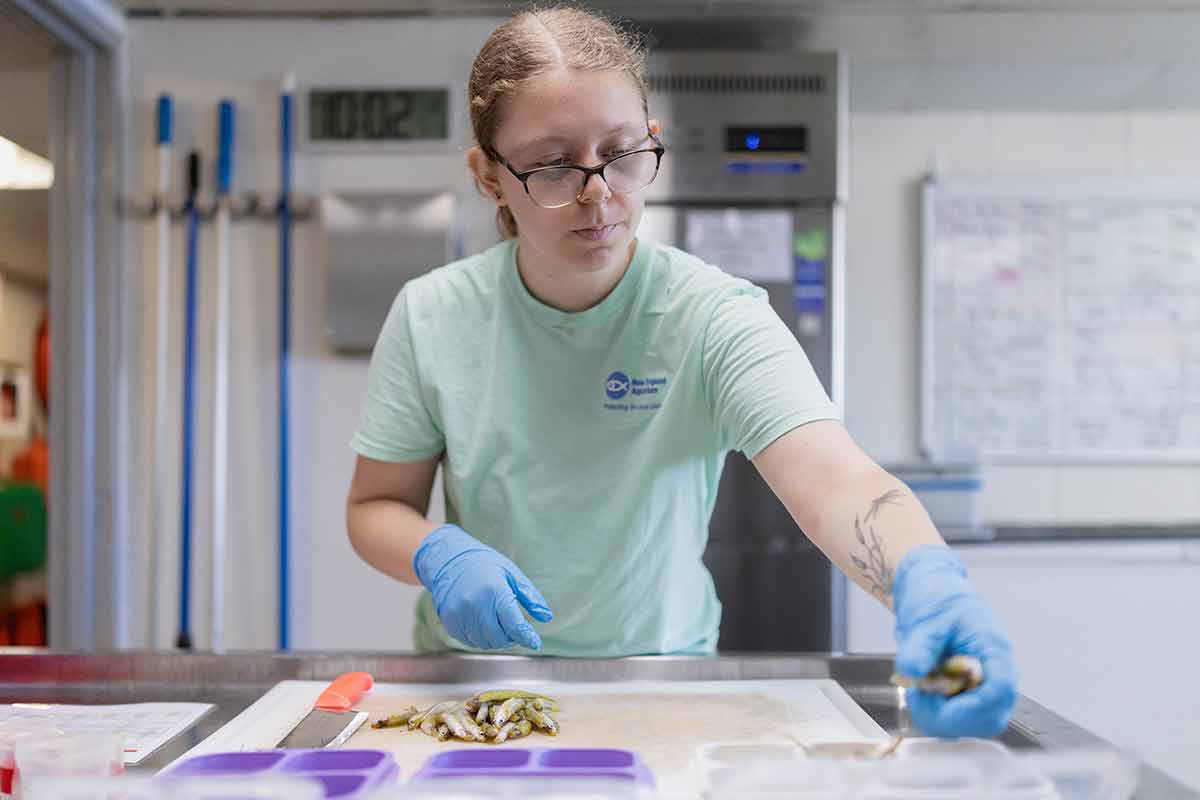
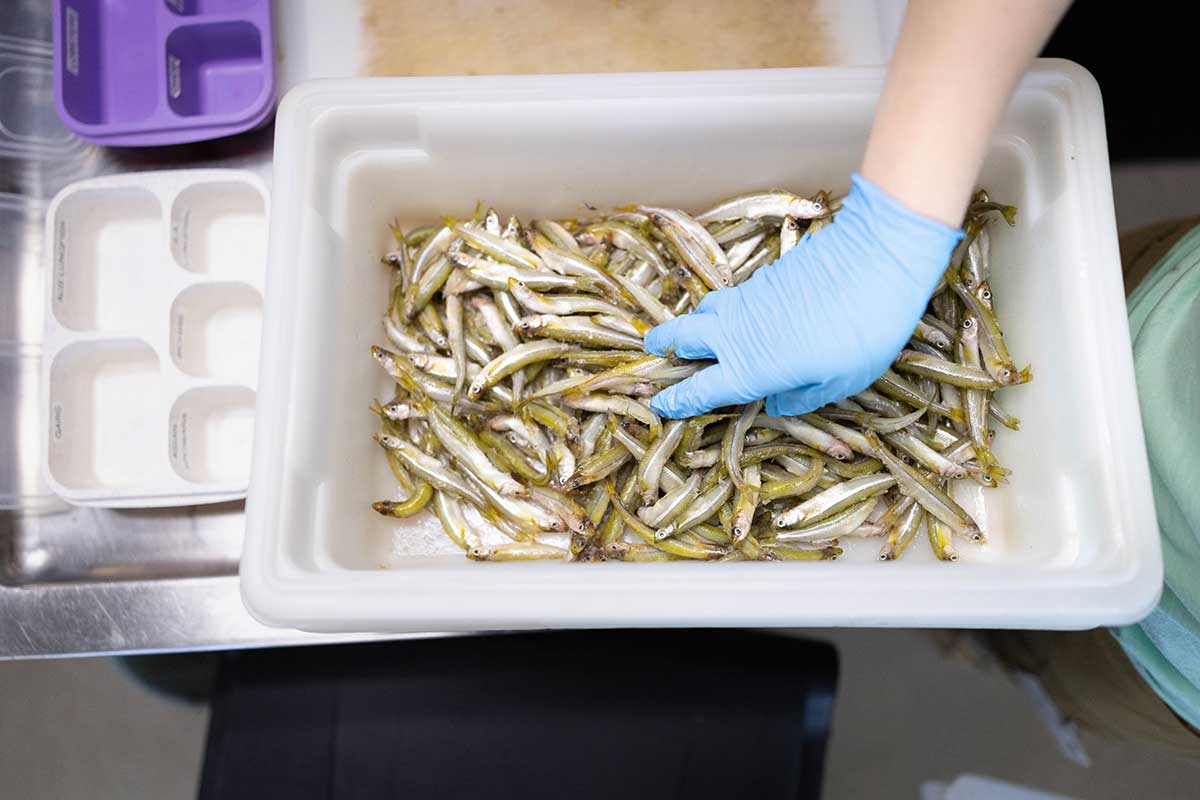
The internship represents both a homecoming and a departure for Gold, who is majoring in biology and environmental studies at Brandeis. She’s used to doing neuroscience research in a Brandeis lab using fruit flies, she says, but her work at the aquarium offers something uniquely different.
“It’s definitely more physically demanding than being in the lab,” she notes, “but it’s been a great way for me to experience working with larger marine animals I want to study later in my education. I mean, I never, ever, thought that I would get a chance to feed something like a goliath grouper twice a week.”
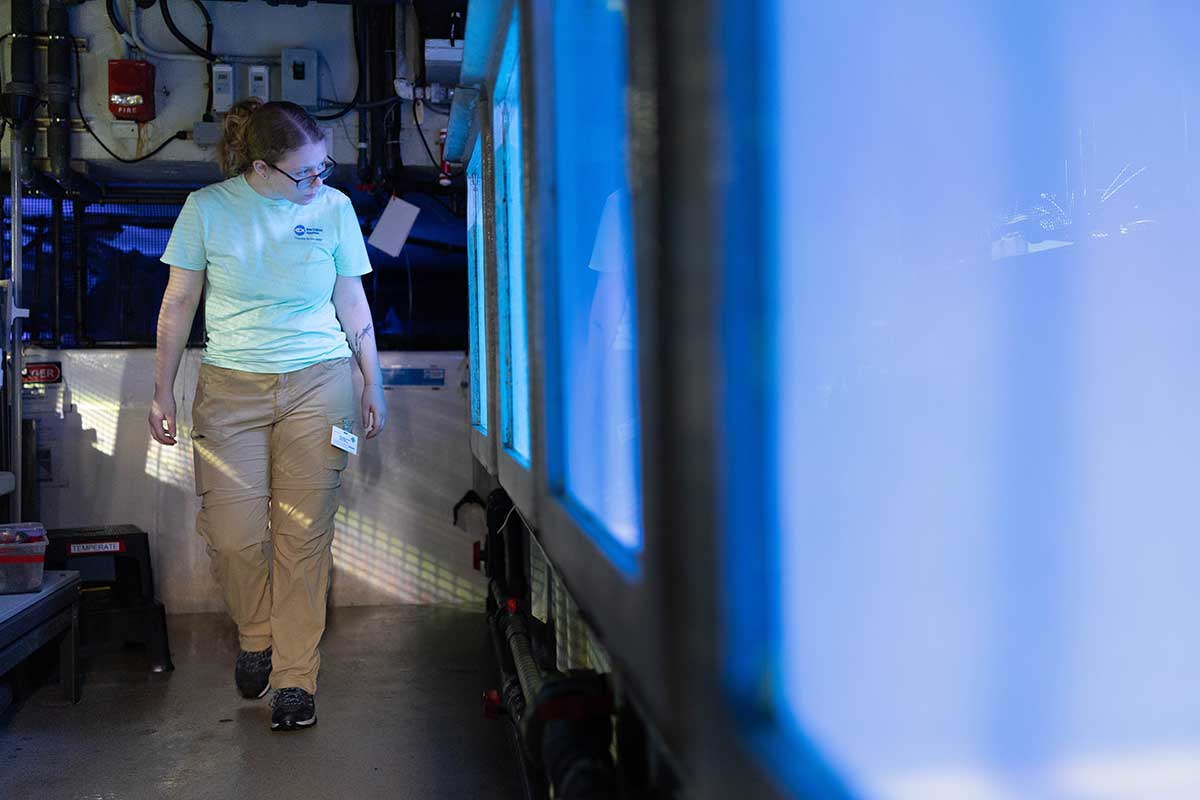
The experience has already gotten her thinking about her senior thesis, in which she plans to compare neural pathways in fruit flies and marine invertebrates. In more practical terms, it has also helped her prepare for an upcoming stint at the Sea Education Association, where she’ll spend six weeks of her spring 2026 semester aboard a research ship studying microplastics and biodiversity in the Atlantic ocean. (She’ll also be learning how to help operate the ship, a 134-foot sailing vessel built specifically for education and research).
In the meantime, the organization that shaped her early fascination with ocean life is serving as an important stepping stone to the next phase of her scientific career. “I went to Brandeis thinking that I wanted to do policy work or public education centered on the oceans — but my experience in the lab and in my internship have made me realize that I just love doing research. It’s really, truly, what excites me about science.”
Brandeis undergraduates who undertake unpaid internships in such fields as social justice, Jewish service, politics, public service and more may pursue a World of Work fellowship, a competitive grant that helps reduce financial obstacles, offered through the Hiatt Career Center.

